We give you the map, it's up to you to decide where to go
The dark web carries a strong reputation for danger: illicit content, hackers, data dumps, and more. But what is on the dark web might surprise you. It isn’t all black market dealings and stolen identities.
Has that piqued your interest? Read on to find out what you’ll find on the dark web—and if it’s worth visiting at all.
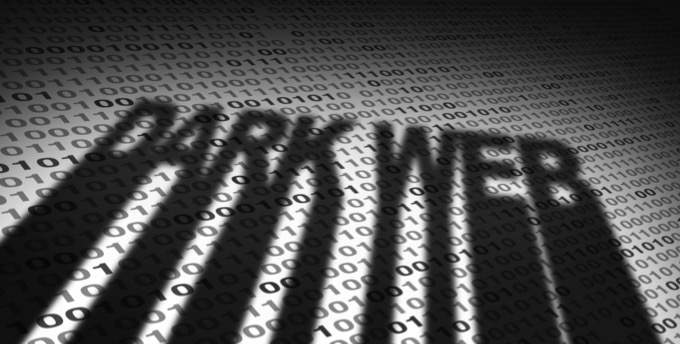
What Is The Dark Web?
The dark web is a small part of the internet that isn’t indexed by search engines. You can’t access it using regular internet browsers, such as Google Chrome or Microsoft Edge. The dark web uses a network of individual nodes and strong encryption to protect data on the network.
The strength of the encryption and the difficulty of tracking online activity on the dark web make it the perfect online location for all manner of malicious and dangerous activities. As well as the bad, there is also good (or at least, safe) to be found on the dark web.
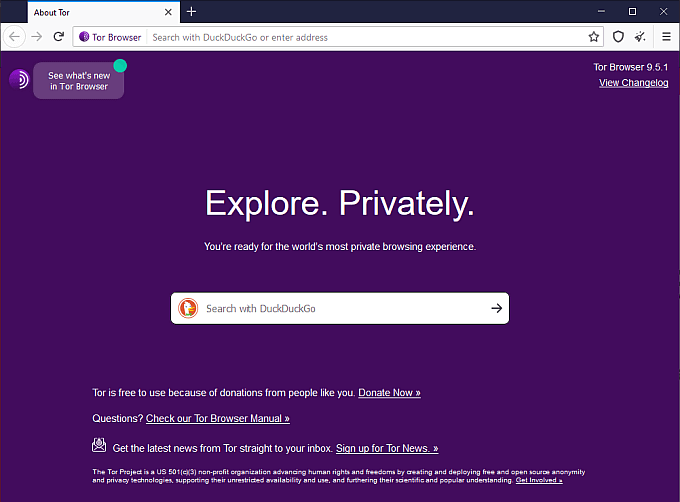
Some major websites also operate dark web versions, such as Facebook, the BBC, and ProPublica. Sites like these let users access services without running into censorship, protecting user identity while visiting potentially restricted information.
To find out more, including how to access the dark web, check out our quick guide to navigating the dark web.
Dark Web Vs. Deep Web
A common misconception is that the dark web is the same as the deep web. The deep web refers to anything that isn’t accessible from a search engine. Although this sounds like the dark web, there’s a difference. The deep web refers to hidden information such as medical records, membership-only sites, confidential data, and so on.
The dark web is a subset of the deep web that you access through a special browser, while the internet that you use every day is known as the “clear net.”
What Is On The Dark Web?
Content on the dark web covers a few key areas:
- Dark web versions of clear net sites
- Illicit or extremist content
- Darknet markets
- Hacking and other similar forums
- Secure and anonymous hosting
- Cryptocurrency related services
- Games, Social Media, Music, Downloads, and More
Each area contains several subsections, too.
Dark Web Versions Of Clear Net Sites
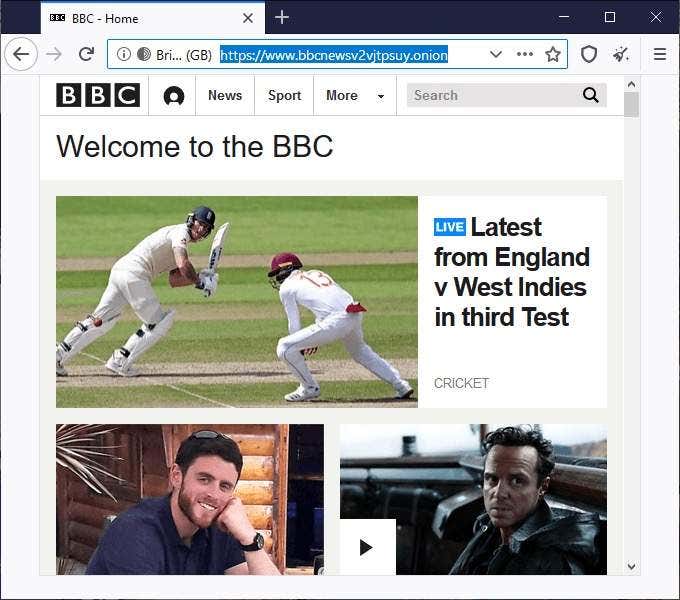
As mentioned above, some major clean net sites also maintain a dark web site. This is to make sure people living under restrictive governments can still access uncensored news, social media, or other important online services.
Illicit Or Extremist Content
As the dark web makes tracing the identity of individual users and the websites hosted upon it extremely difficult, a lot of extreme content takes host there. The range of extreme content covers many of the worst forms of content you can imagine (child pornography, terrorist violence, animal cruelty, and so on).
As such, we will not discuss the full range of illicit and extremist content on the dark web.
The most extreme forms of illicit content are locked in private forums. But you should not go looking for things you do not want to find the answer for.
Darknet Markets
Darknet markets are like the Amazon of the dark web, but are primarily involved in the sale of illegal drugs. Darknet markets attract a lot of attention from the authorities. The original darknet market, the Silk Road, is infamous. Its creator, Ross Ulbricht, is currently serving a double-life sentence for his conviction following the site takedown.
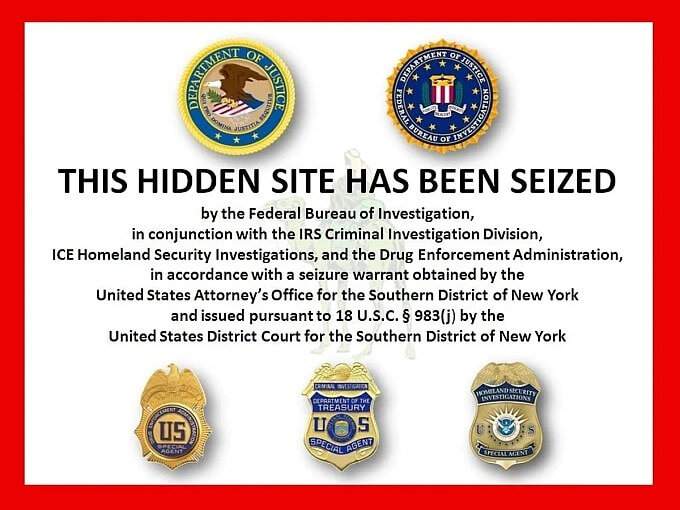
There have been many more darknet markets since that time. Each time the authorities take down a darknet market, it leads to a string of high-profile arrests. Yet each time, another string of darknet markets pop up to hoover up the users and continue working.
Make no mistake. Darknet marketplaces are dangerous.
Hacking And Other Similar Forums
The dark web is attractive to all types of hackers. You’ve probably heard the tales of hitmen and DDOS services for hire. The truth lies somewhere in-between. There are underground hacking forums where private data, malware, credit card details, personal identifying information, and much more are for sale.
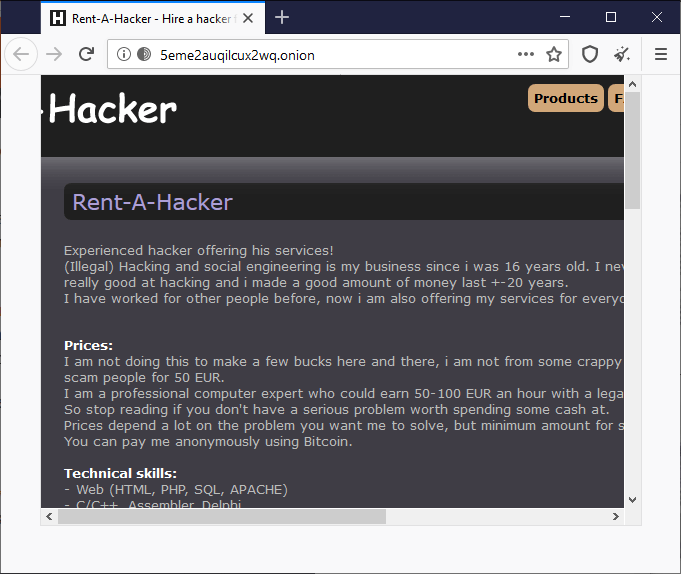
Again, these hacking forums sound intriguing but are filled with people who scam and lie for a living.
Adding to this, many hacking forums are invite only and require you to know an existing member. The existing member may have to vouch for you, too.
Secure And Anonymous Hosting
Secure and anonymous hosting keeps the dark web ticking. The overwhelming majority of websites on the dark web demand total privacy. That means finding a website host that doesn’t care about website content, is based in a secure jurisdiction (with strong or non-existent data privacy laws and no extradition treaties), and will not hand over keys to the servers if the authorities come calling.
The combination allows secure and anonymous hosting providers to claim that they do not know what is on the websites, and therefore cannot be held responsible.
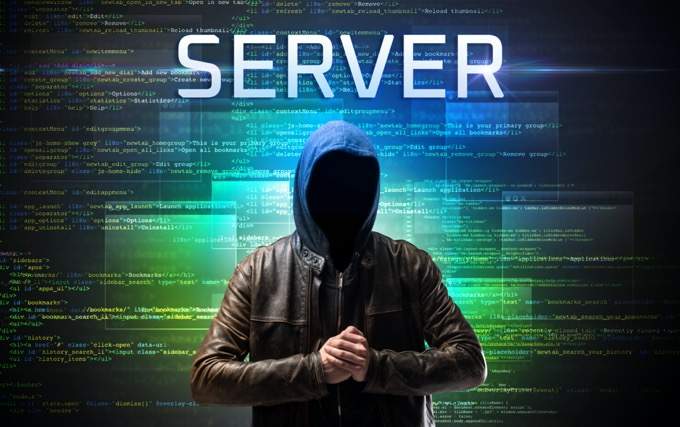
There are few truly secure and anonymous hosting services. Those that do exist and prove that they are secure typically have thousands of clients. However, this poses a different risk to dark web sites and users of those services: hackers.
In early 2020, Daniel’s Hosting, the largest free web hosting provider on the dark web, was hacked for the second time in 16 months. The hacker took 7,600 dark web portals offline, deleting the entire Daniel’s Hosting backend and database. Website hosts can move elsewhere, but like the darknet markets, it can become a game of digital whack-a-mole.
Cryptocurrency-Related Services
Bitcoin is the currency of the dark web. Some vendors accept other smaller cryptocurrencies, such as Monero, but for the most part, Bitcoin rules the roost. As a pseudo-anonymous digital currency, Bitcoin ties into the idea of privacy and anonymity that dark web services require.
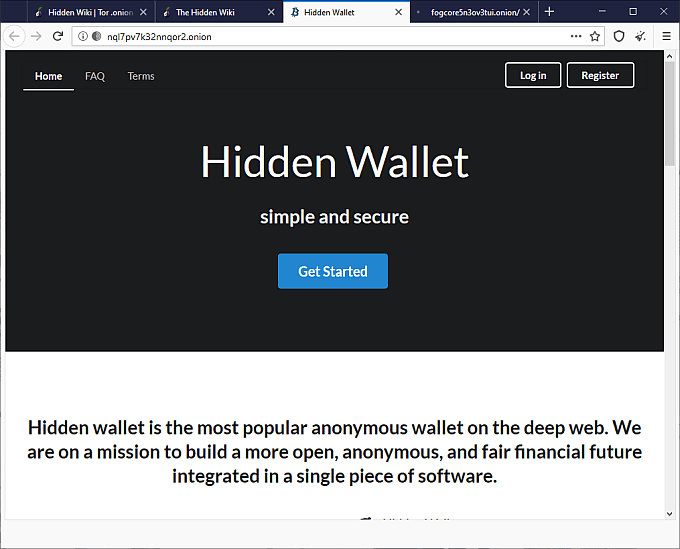
There are other Bitcoin services, too. For example, you can find Bitcoin tumbling services which attempt to sever the link between Bitcoin’s digital transaction history and the user, further boosting anonymity. There are also countless cryptocurrency gambling portals, which may scam you, and just outright scams offering to double or triple your Bitcoin holdings for nothing.
Games, Social Media, Music, Downloads, Chat Rooms, and More
The dark web isn’t all doom and gloom.
Throughout the years, there have been multiple dark web social media services. These services include multiple incarnations of TorBook (named after the Tor network), Blackbook, TapIIN, and many others. The difficulty is maintaining a dark web social media network presence that remains anonymous. Furthermore, there is the ever-present issue that the site might disappear overnight, leaving you locked out of your account permanently.
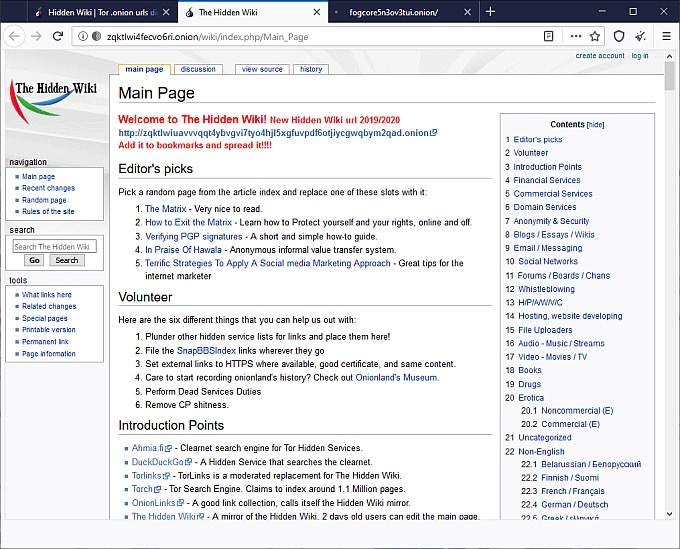
You’ll also find dark web sites offering downloads of music, software, games, and much more. Most of the content available to download is pirated material, which is illegal to download.
There are also dark web search engines, like Torch, that allow you to search for some types of dark web content. You won’t always get the search results you expect, however, as the dark web doesn’t index like the clear net and many websites don’t want you to find them.
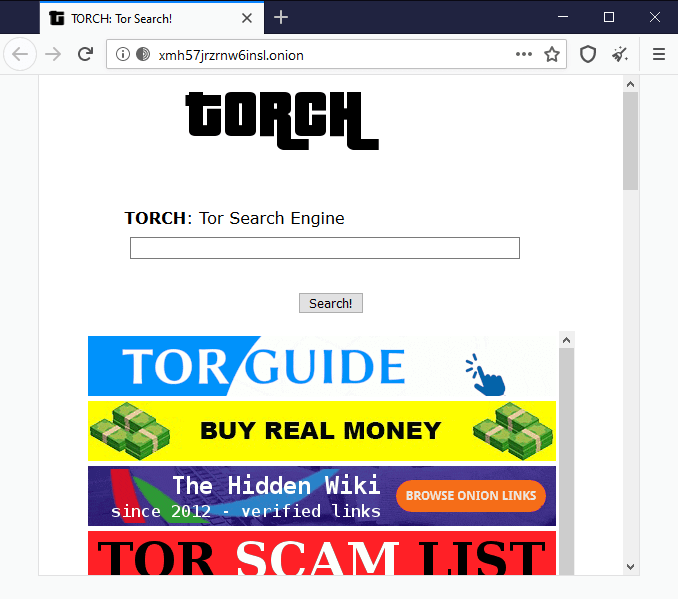
Finally, you’ll find sites created by regular people to test their programming skills, or just out of personal interest. If that sounds like you, check out how to create your own onion site on Tor.
Is The Dark Web Safe?
Despite everything you’ve just read, the dark web is fairly safe. If you look for trouble, you will find it. If you stick to dark web sites that are well known and do not click every link you see, you should remain secure. The Tor browser disables several trackers and scripts, which increases your security—but you shouldn’t take that extra security for granted.
If you are going to explore the dark web, you need proper security. Before accessing the dark web, check out the best antivirus and malware scanners to remove any virus.




